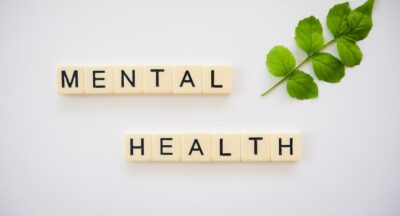
How Can Group Therapy Help Us?
- Do you feel better when you talk and share your experiences with someone who understands you?
- Do you like to have this conversation more than a simple chat and benefit from the knowledge of a psychologist?
- Are you interested in growth, self-prosperity, enriching your experiences, gaining serenity, and being more successful?
- If you answered yes to these questions, then group therapy is what you are looking for.
What is group therapy?
Group therapy, or group psychotherapy, is a scientific and effective method to understand and manage psychological problems. The members of group therapies are usually those with similar problems and issues. Through a psychologist’s guidance and scientific instructions, in a safe environment, without a sense of being judged, the members interact with each other, learn from the psychologist, other members of the group, and specifically, an important part of themselves in relation with others, speak of their experiences, listen to each other, and get support from each other. All to have a healthier life.
What are the different types of group therapy?
The world of psychology is not only meant to be for treating psychological disorders and mental issues. Those without illness can also be helped by psychology to experience more profound growth, enrich their lives and track their life through a path of prosperity and health. Therefore, it is essential not to be tricked by the word “Therapy” when we say group therapy. Group therapy is not meant only for treatment; some groups join together to grow, prosper, and learn methods of gaining calm and success.
There are also differences among the therapy groups based on their psychological approach, number of members, and sessions. However, beyond all of these differences, various advantageous group therapy results are proven in different clinical outcomes and scientific studies.

What are the benefits of group therapy?
Group therapy is not a simple gathering to chat about experiences. Psychologists are aware of the scientific basis of group therapy and are present in all sessions. They give scientific advice, conduct treatments, look out for the members’ mental state and manage the sessions to stay in an efficient and healthy lane. The presence of a psychologist and being goal-oriented are two significant points and reasons behind the efficiency of group therapy.
2. We realize that we are not alone.
Group therapy members are usually homogeneous; they have similar experiences, issues, concerns, and worries. If the members are homogeneous, similarities in concepts and experiences reduce the feeling of loneliness.
In other words, knowing other people are experiencing the same problems as we do helps us feel calm and understood. This way, the feeling of loneliness and separation would diminish in us.
3. We find a supportive network.
Similar and fundamental human concerns will cause the group members to understand each other’s experiences and words thoroughly. Under specific group rules, they can give each other emotional support or fine advice. Hearing similar concerns from someone else brings a sense of sympathy and eliminates the feeling of loneliness. It also can be likened to a mirror in which we can see our image again from a distance.
4. We gain a new approach to our issues.
By understanding how other people interpret the circumstances differently, we will find a new approach to ourselves and our lives. We can see everything from another point of view. We can use others’ experiences to cope with our conditions more effectively, find new solutions to our problems, and learn more strategies.
5. We settle in a safe space of no judgments.
It might have happened that you felt your decisions and behaviors were being judged even by your closest ones. You might have been worried about telling your secrets to them. In group therapy, the members are in a safe space where all their thoughts and issues are easily said. In such an environment, we can worry less about being judged. As a result, we can talk about nonrevealed parts of ourselves and become aware of them and their influence on others.
6. We practice social skills.
Sympathy, active listening, being nonjudgmental, keeping secrets, and paying attention to another person’s sorrow are among the most crucial social and communicative skills. To have an effective and healthy presence in group therapy, we should practice these skills alongside other members. Sometimes, some groups are formed mainly to have the members practice these skills. Participation in a group significantly enriches our social skills and the capacity to cope with others.
Things to know before attending a group therapy
Group therapy is not advised for every condition, problem or illness. The psychologist -an expert in group therapy and the leader of the group- is the one who uses prior knowledge of you to decide whether these group sessions would be optimal for you or not.
The other important point is that all the groups have specific rules to support the members. The members often affirm before the sessions that they will be keeping secrets, will not insult one another, will listen to the instructions and explanations given by the psychologist, and will not get involved in an outside-the-group relationship with other members. Only by keeping these rules can group therapy have its most efficiency.
Group therapy is a conscious and unique experience that is almost always efficient for those eligible for attending it.
Related Posts
Psychologist or psychiatrist; which one should I choose?
If a person breaks a leg, it is not the job of a heart surgeon to treat the...
Why sometimes do we need psychotherapeutic medication?
There is often resistance against psychotherapeutic medications. The reason for...
How can we keep our mental health safe after immigration?
Immigration is one of the most complex experiences in one's life. Perhaps there...
How Can Group Therapy Help Us?
Do you feel better when you talk and share your experiences with someone...




